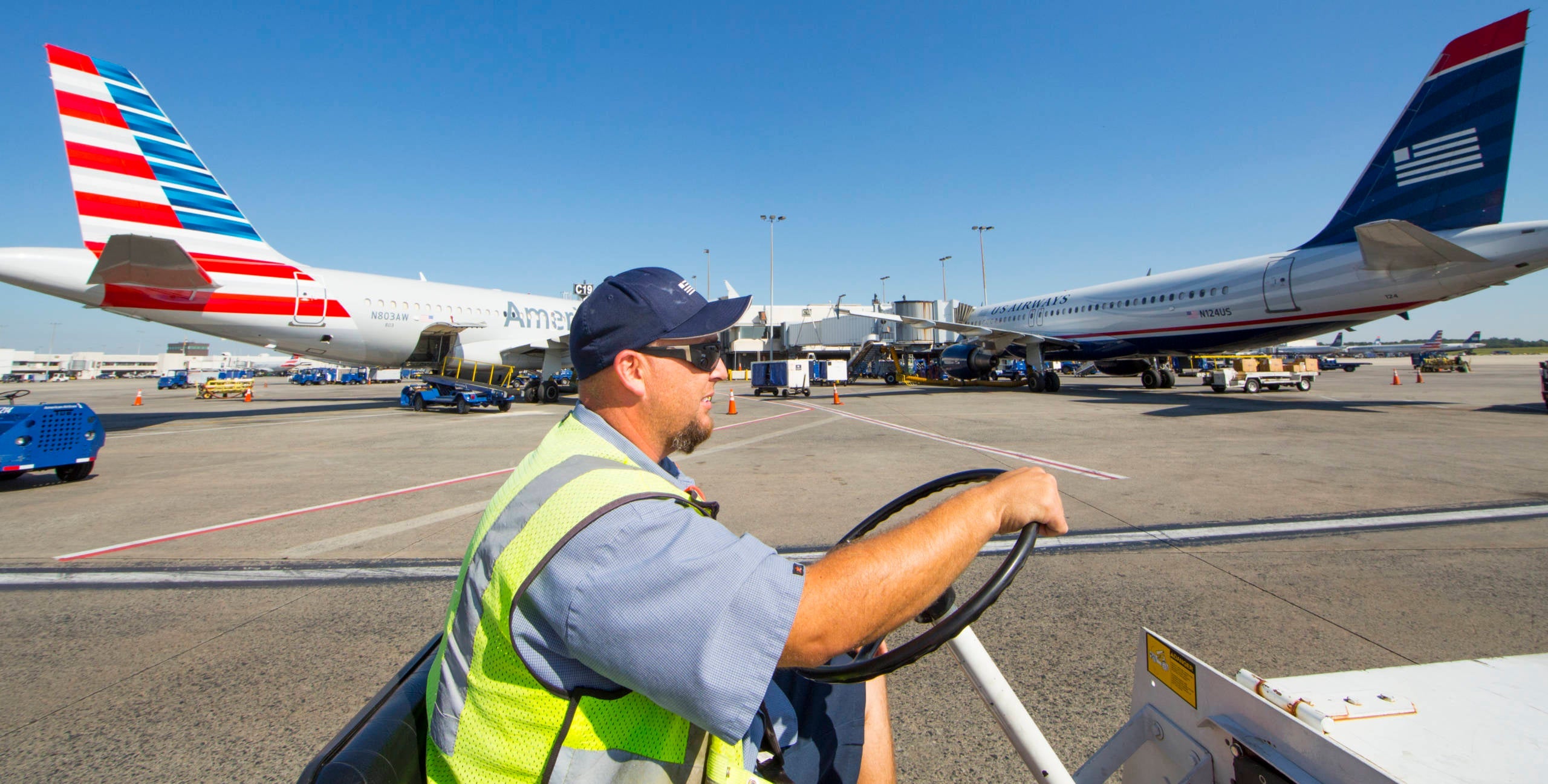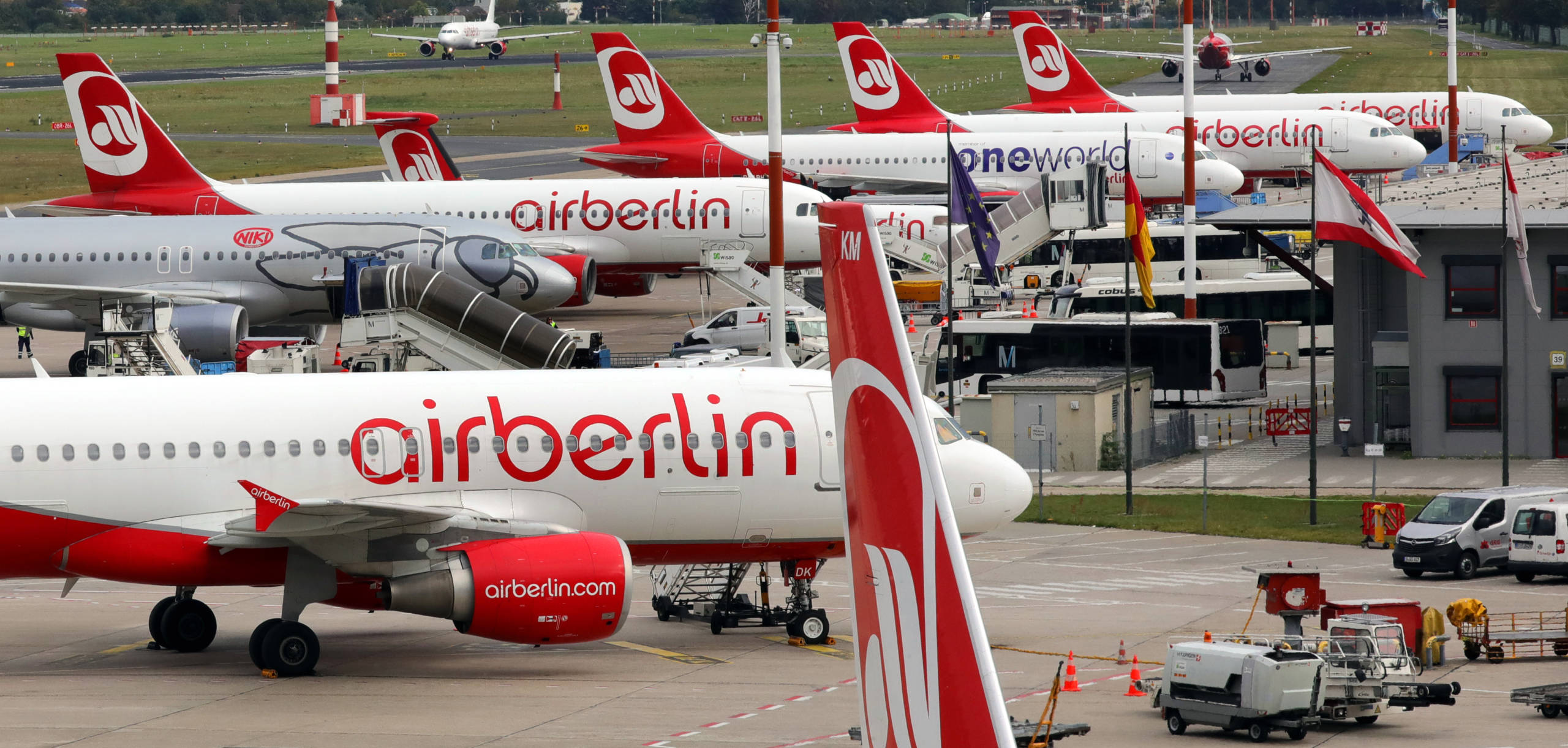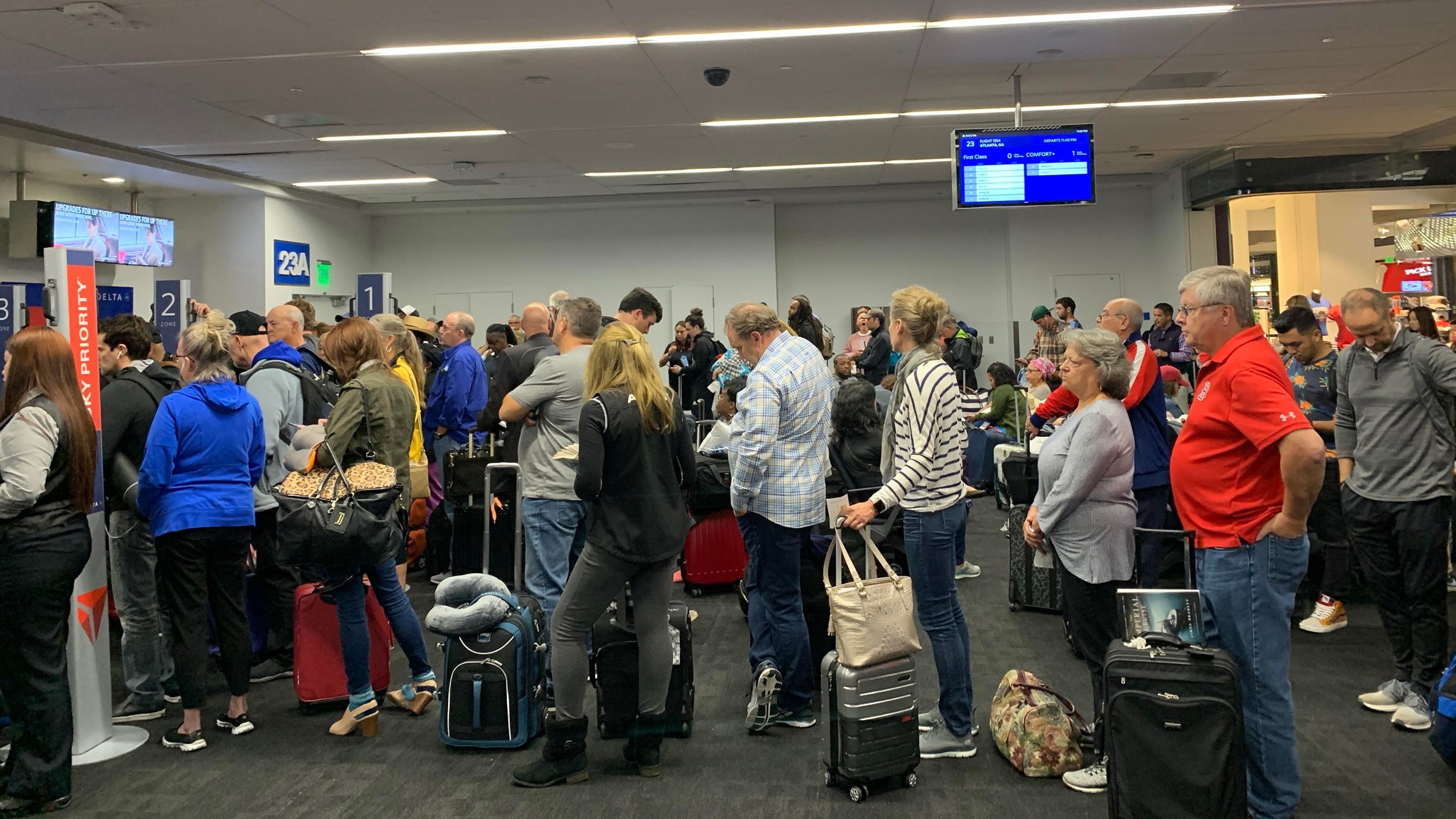Do frequent flyer miles survive airline bankruptcies? It depends
With the aviation industry thrust into sudden, unprecedented turmoil in the last few weeks as a result of the spreading coronavirus pandemic, some frequent travelers have begun to fret about what will happen to their stockpile of miles if their favorite airline goes bankrupt or out of business entirely.
It may not be the most pressing issue of the day, but it is a legitimate question as people think about life after the pandemic passes.
In short, there are basically two possible outcomes for frequent flyer miles once the crisis ends, according to Henry Harteveldt, a travel industry analyst and president of Atmosphere Research.
Sign up for the free daily TPG newsletter for more airline news.
"If an airline declares bankruptcy but continues to operate, nothing happens to your frequent flyer miles. Absolutely nothing. They remain there and your account remains active and valid," Harteveldt said. But, he added, "if your airline shuts down and isn't merged into another airline, then you lose your frequent flyer miles."
Since 2000, there has been a sea-change in the U.S. aviation industry, as many carriers went through bankruptcies, mergers and other structural changes.
"Considering that American, United and Delta have all gone through bankruptcy, we have fairly recent experiences with this," Harteveldt said. In all those cases, passengers' miles remained valid, even as the carriers went through financial difficulties. Mergers — which have frequently followed bankruptcies during that period — also allowed frequent flyers to keep their miles, even if the airline that issued them ceased to exist as a brand.
Related: Coronavirus-related waivers and schedule changes in place at U.S. airlines.
The list of examples is long. Among them:

United Airlines
United Airlines filed for bankruptcy protection in late 2002 and remained there for a whopping three years. In early 2006, United finally emerged from Chapter 11 – as did its MileagePlus program. Like the other big U.S. airlines that endured bankruptcy, United eventually found a merger partner in Continental. Continental's OnePass frequent flyer accounts were merged into United's when that deal closed in 2010.
Northwest Airlines
Northwest filed for Chapter 11 bankruptcy protection in 2005 before emerging in 2007. Members of the carrier's WorldPerks program came out unscathed. Northwest made deep cuts during its bankruptcy reorganization, but the carrier continued to operate normally – as did the carrier's loyalty program. A year later, Northwest and Delta announced their plans to merge. The deal was cleared, and Northwest's frequent flyer program was integrated into Delta's.
Delta Air Lines
Delta Air Lines sought Chapter 11 protection in 2005. It fought off a hostile takeover bid from US Airways before emerging as a standalone carrier in 2007 – its SkyMiles frequent flyer program intact. But Delta wouldn't remain stand-alone for long, thanks to that merger with Northwest that came in 2008.
In 2020: Delta to emerge a much 'smaller' airline from coronavirus crisis
American Airlines
American joined the rush of major airlines into bankruptcy protection in late 2011. It and its AAdvantage program would eventually emerge two years later as part of a merger with US Airways.
US Airways
US Airways survived several close calls earlier this century. The airline was thought to be perilously close to liquidation as it filed for bankruptcy twice during a two-year span beginning in 2002. But the carrier survived, emerging both times from Chapter 11 bankruptcy reorganization. The carrier's Dividend Miles frequent flyer program pulled through as well.
But US Airways' Dividend Miles accounts have been through more than just bankruptcies. They've also seen several mergers. In 2005, America West initiated a merger with US Airways that saw the combined company keep the US Airways name and frequent flyer program. In that case, America West frequent flyers saw their miles ported over to US Airways. A similar scenario unfolded nearly a decade later, when US Airways merger with American in a 2013 deal. Just as before, US Airways frequent flyer accounts – and their miles – were folder into American's AAdvantage program.

Frequent flyer status also has historically survived along with the miles.
As a general rule, Harteveldt said, "If you have status in an airline, your status remains intact."
While past changes in the airline industry offer some guidance on what frequent flyers can expect after the pandemic passes, Harteveldt also sounded a note of caution that there are no guarantees the industry will look or act the same after this slump. If Congress does not pass a generous aid package for airlines and other travel companies, he believes bigger structural changes may be on the horizon.
Not passing such aid, Harteveldt said, "increases the chance of airlines going bankrupt or the potential for some airlines not being able to survive this period." He added, "The airlines that are left may not have the cash to invest in another airline," which would mean that if an airline can't keep itself afloat through this period, it might go out of business entirely, nullifying the frequent flyer miles it issued along with it.
More: US 'big 3' well-positioned to survive possible coronavirus crisis shakeout, analysts say
"What we really have to hope for is that all the airlines we have going into this crisis survive and come out on the other end," Harteveldt said.
Without a government bailout, or a buyout by another airline, frequent flyer miles on a bankrupt carriers generally disappear. When Air Berlin went out of business in 2017, no other airline came to its rescue, and its miles quickly became unusable, even on other Oneworld airlines.

Miles earned through co-branded credit card purchases aren't protected when an airline goes out of business, either, so you may be better off for now spending on a card that earns general-use currency -- like Chase Ultimate Rewards or American Express Membership Rewards points -- until the dust settles.
Related: Some airlines have all but shut down as a result of the coronavirus pandemic.
For now, Harteveldt emphasized, it's important to give airlines time to deal with the immediate crisis of the sudden, unplanned-for drop in demand.
"Don't bother airlines right now, don't call the frequent flyer line, don't email the frequent flyer support desk with questions about your frequent flyer status," he said. Airlines care a lot about their most loyal customers, he said, even if they don't show it "when circumstances are normal."
Harteveldt, who worked for a number of airlines including TWA and Continental over his career, said that those travelers are usually at the top of executives' minds when they plan any major changes to their businesses.
People should think about the bigger picture before getting too hung up on their frequent flyer accounts right now, Harteveldt said.
"I would just urge everyone to put things in perspective and let's focus on the important matters here, namely getting through this health crisis and hoping that the country doesn't go into a deep recession."
More: Complete guide to traveling during the deadly coronavirus outbreak
TPG featured card
at Capital One's secure site
Terms & restrictions apply. See rates & fees.
| 5X miles | Earn 5X miles on hotels, vacation rentals and rental cars booked through Capital One Travel |
| 2X miles | Earn unlimited 2X miles on every purchase, every day |
Pros
- Stellar welcome offer of 75,000 miles after spending $4,000 on purchases in the first three months from account opening. Plus, a $250 Capital One Travel credit to use in your first cardholder year upon account opening.
- You'll earn 2 miles per dollar on every purchase, which means you won't have to worry about memorizing bonus categories
- Rewards are versatile and can be redeemed for a statement credit or transferred to Capital One’s transfer partners
Cons
- Highest bonus-earning categories only on travel booked via Capital One Travel
- LIMITED-TIME OFFER: Enjoy $250 to use on Capital One Travel in your first cardholder year, plus earn 75,000 bonus miles once you spend $4,000 on purchases within the first 3 months from account opening - that’s equal to $1,000 in travel
- Earn unlimited 2X miles on every purchase, every day
- Earn 5X miles on hotels, vacation rentals and rental cars booked through Capital One Travel
- Miles won't expire for the life of the account and there's no limit to how many you can earn
- Receive up to a $120 credit for Global Entry or TSA PreCheck®
- Use your miles to get reimbursed for any travel purchase—or redeem by booking a trip through Capital One Travel
- Enjoy a $50 experience credit and other premium benefits with every hotel and vacation rental booked from the Lifestyle Collection
- Transfer your miles to your choice of 15+ travel loyalty programs
- Top rated mobile app


